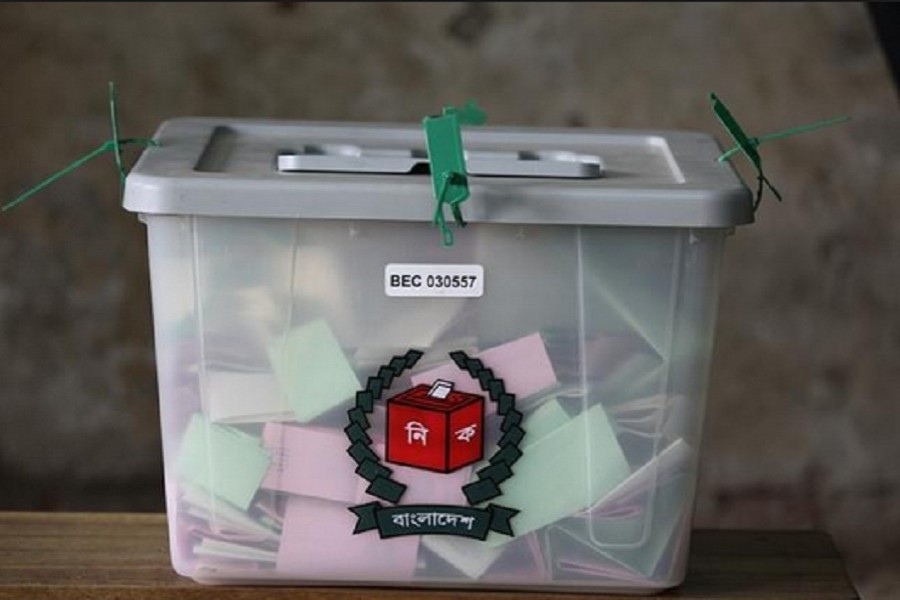A promise made must be a promise kept -- Aristotle As this well known one liner keeps tapping at the eardrums when it comes to election promises, one has reasons to be intrigued by the enormity of hollow pledges, even outright fake assurances included in their party manifestos look grand.
With the national polls knocking on the door, major political parties and alliances have announced what they are up to, if voted to power. Ideally, the manifestos should have been in the pre-election debates, not just to see who scores more in demonstrating greater passion for the countrymen but to examine how far some of the key pledges are unrealistic to be implemented.
No doubt the overall economic environment of the country is better than perhaps it ever was. The country has experienced impressive economic health in the past decade averaging a 6.5 per cent GDP growth. Over and above, in the past three consecutive years the growth rate went past 7.0 per cent, making the country one of the fastest growing in the world. While the rise of per capita income from $703 in 2008-09 to $1,751 in 2017-18 is a significant leap, other economic and development indicators in the fields of trade, poverty reduction, inflation, infrastructure building, among others, also testify to the successes the country currently takes pride in. In such a situation with things well in place to work on, it is interesting to see how the political parties, particularly the main two contesting parties -- the ruling Bangladesh Awami League and the Bangladesh Nationalist Party -- plan to go ahead, if elected, for the next five years of electoral tenure.
Curiously, both the AL and the BNP have made it a strong point in their manifestos to achieve high GDP growth. At a time when GDP growth -- no matter what it signifies in terms of equitable economic growth of a country -- has become a buzzword for weighing success, it was highly likely that pledges for higher GDP growth would figure prominently in their manifestos. But how about achieving 10 per cent GDP growth and per capita income of $2,750 by 2023-24 as proclaimed in the AL manifesto? Understandably, this targeted growth has been set in keeping with the Vision 2021-41 of the ruling party. However, setting a target is one thing and hoping to achieve it is another. The AL has been in power for the two successive terms -- a good enough time to recognise the challenges of jumping to double digit from the current 7-plus. The accompanying development programmes that might help achieve higher GDP growth to the proximity of the targeted growth are not there in the manifesto. Besides, there are externalities too, like overseas remittance, FDI inflow, export performance that may either come in the way of desired growth or may fall in place to support the growth strategies.
On the other hand, the BNP's manifesto on GDP growth at a still higher rate of 11 per cent sounds even more grandiose. Besides, some of its other pledges appear to be more driven by populism. The promise of 10 million new jobs in five years and two hundred thousand appointments in government service in the next three years, minimum wage of Tk 12,000 for RMG workers in two years, no-hike in gas and electricity prices in the first year are issues that seem to have been flagged on their face value and not on the basis of some methodical homework.
Job creation, no doubt, is the most crucial and demanding task, but it has to trigger from economic activities -- and indeed profitable economic activities. The BNP's promise to introduce crop, livestock, fisheries and poultry insurance, is indeed praiseworthy, but going about the job calls for elaborate efforts and well planned mechanisms to bring all stakeholders on board to be able to facilitate insurance for these vital agro sectors. Surely, there are also factors here that require more than just the will to achieve.
The AL manifesto, too, emphasises on job creation, and its target even overshoots that of the BNP. AL promises to create 10.28 million jobs in the next five years. AL also promises to create 1,000 new overseas jobs in each upazila for men and women. There are more to the manifesto that do not seem plausible, in that it doesn't depend on what the party in power wishes. Removing gender wage gap is one.
Given the two consecutive terms in office, the AL is certainly better placed to chart the future course keeping in mind the many constraints and impeding factors. Still, the reality is: it can't avoid the over-ambitious character of typical election pledges. As for the BNP, it seems the party is quite a bit out of touch with the obtaining realities. Should that mean election promises have to be senselessly lofty that neither the parties nor the citizenry care much to remember?


